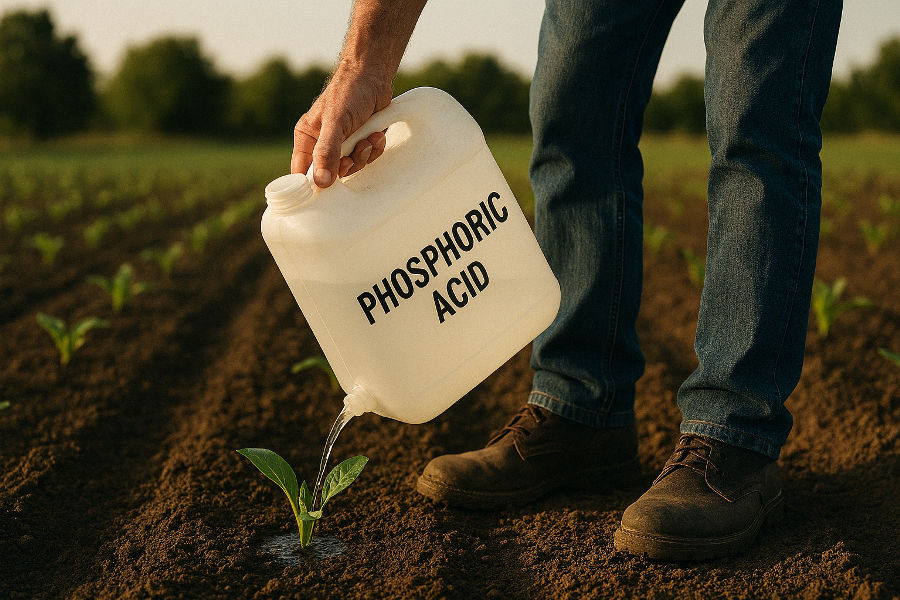Phosphoric Acid uses in Agriculture
What is Phosphoric Acid and Why It Matters to Farmers?
Phosphoric acid is a powerful source of phosphorus (P) – one of the three essential nutrients (NPK) needed for healthy plant growth. In agriculture, it is widely used in fertilizers to support root development, flowering, and fruiting.
How Phosphoric Acid Helps Your Crops:
-
Stronger Root System: Phosphoric acid promotes deeper and healthier root growth, making plants more drought-resistant.
-
Better Flowering & Fruiting: Phosphorus boosts flower formation and increases fruit set, improving both quality and quantity.
-
Improved Energy Transfer: It helps in energy movement within the plant, increasing overall plant strength and growth.
Where Is It Used?
Phosphoric acid is commonly found in DAP (Diammonium Phosphate) and liquid phosphate fertilizers used for crops like wheat, rice, cotton, banana, and vegetables.
How to Use It Effectively:
-
Always check the soil test report before application.
-
Use recommended doses to avoid overuse.
-
Can be applied via soil, drip irrigation, or foliar spray, depending on crop and stage.
Is It Safe for Soil?
Yes, when used correctly, it improves soil fertility and does not harm beneficial microbes. However, overuse can lead to soil hardening, so balance is key.
Final Tip for Farmers:
Phosphoric acid is not just a chemical – it's a growth booster. Use it wisely to get stronger plants, better yields, and more profit from your farm.
